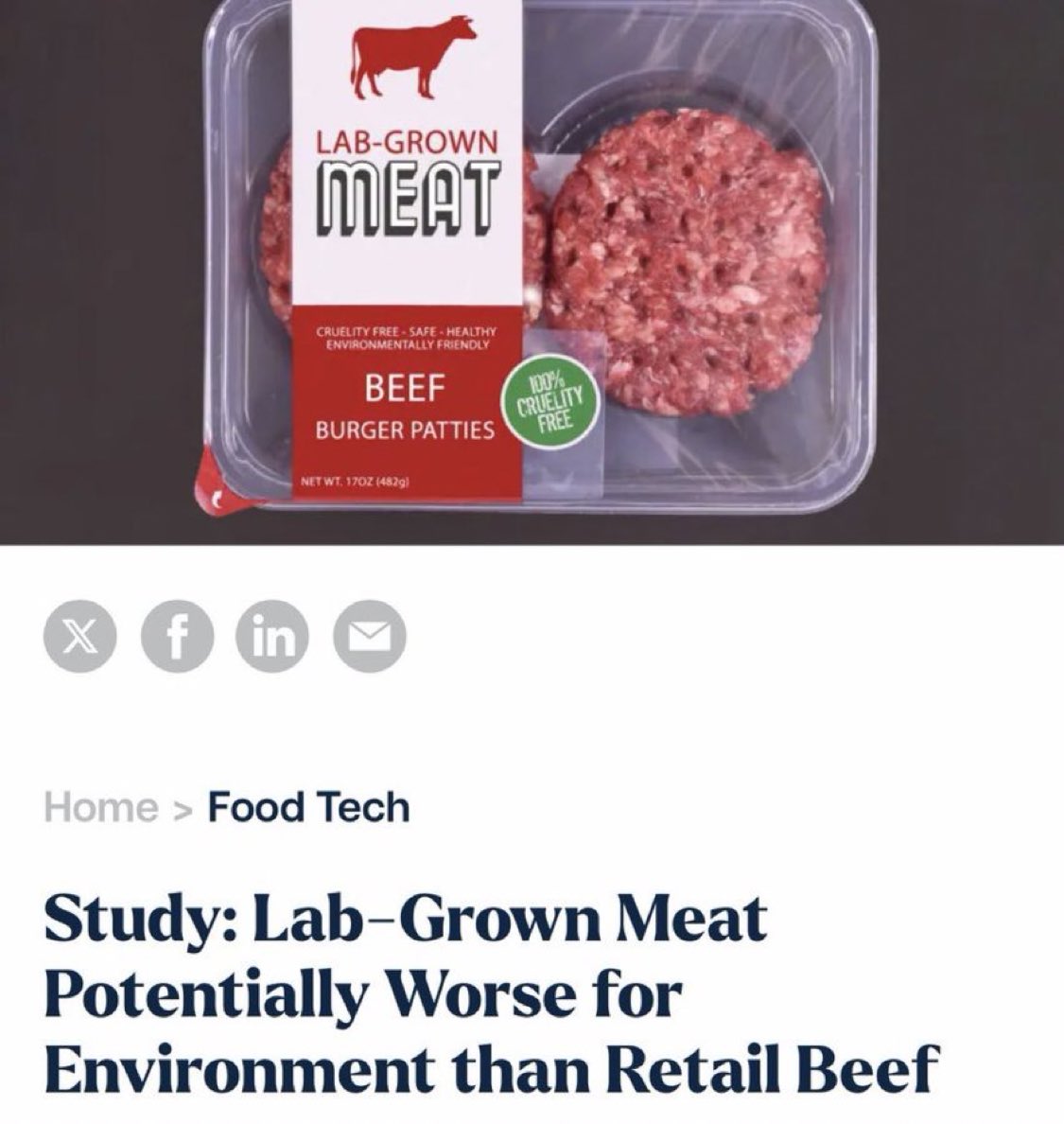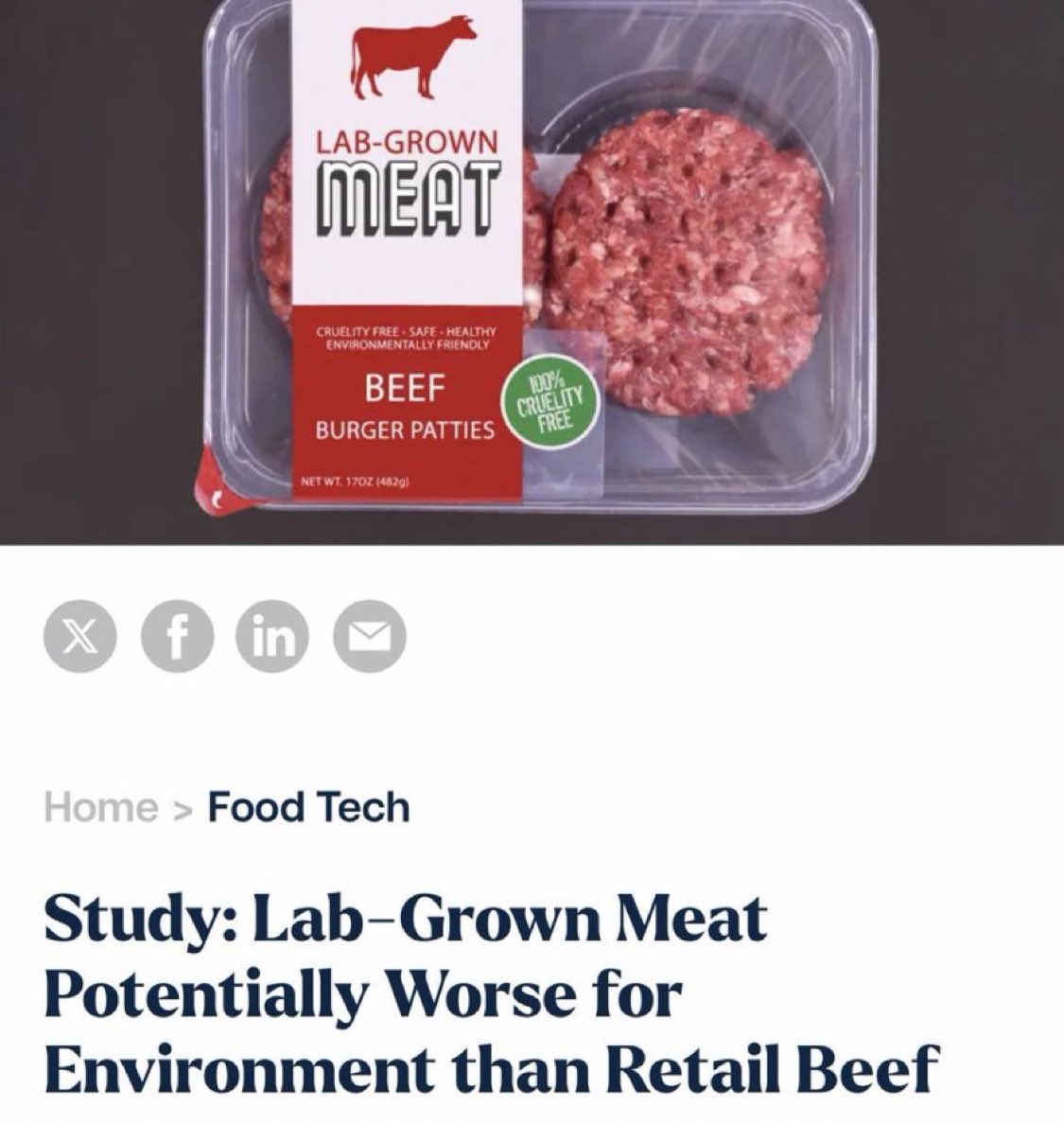Lab-Grown Meat vs. Pasture-Raised Cattle: Environmental Impact Study
Recent research from the University of California has sparked significant debate regarding the environmental impact of lab-grown meat versus traditional pasture-raised beef. This study reveals a startling conclusion: lab-grown meat may be up to 25 times worse for the environment compared to natural, pasture-raised cattle. The findings challenge the widely held belief that lab-grown alternatives are a more sustainable solution to the growing demand for meat.
The Study’s Findings
The intradepartmental study conducted at the University of California analyzed various environmental metrics, including greenhouse gas emissions, land use, and water consumption associated with both lab-grown and traditional meat production. The results indicated that while lab-grown meat is often marketed as a more eco-friendly alternative, its production process is significantly more resource-intensive than that of pasture-raised cattle.
Understanding the Environmental Impact
Lab-grown meat, produced through cellular agriculture, requires high energy inputs and extensive technological processes. The energy-intensive nature of producing meat in a lab setting leads to increased carbon emissions compared to the relatively lower emissions associated with raising cattle on pasture. Pasture-raised cattle, while not without their environmental challenges, often utilize land that may not be suitable for crop production and contribute to carbon sequestration through managed grazing practices.
The Benefits of Pasture-Raised Cattle
Pasture-raised cattle offer several ecological advantages. They promote biodiversity, improve soil health, and can even help mitigate climate change through proper grazing management. By grazing on grasslands, cattle can enhance the carbon-sequestering capacity of the soil, thereby reducing overall atmospheric CO2 levels. Moreover, pasture-raised systems tend to have lower water usage and contribute positively to the local ecosystem.
Public Perception and Consumer Choices
The findings of this study have important implications for consumer choices and public perception around lab-grown meat. With increasing awareness of environmental sustainability, consumers may reconsider their preferences for lab-grown alternatives, particularly in light of the significant ecological footprint highlighted by the study.
The Future of Meat Production
As the global population continues to rise, the demand for meat is expected to increase. This puts pressure on the food industry to explore sustainable practices. While lab-grown meat has been positioned as a solution to overfishing and factory farming, this study urges stakeholders to reassess the narrative surrounding alternative proteins. It suggests that improving traditional livestock farming methods may be a more effective approach to achieving sustainability in the meat industry.
Conclusion
In summary, the University of California’s study presents compelling evidence that lab-grown meat may not be the environmentally friendly alternative it is often portrayed to be. With pasture-raised cattle exhibiting multiple ecological benefits, consumers and industry leaders must weigh the true impact of their dietary choices. As discussions on sustainable food production continue, it becomes increasingly important to consider not just the innovation of lab-grown meat but also the value of traditional farming practices in protecting our planet.

An intradepartmental study from the University of California, concluded that lab-grown meat may be up to 25 times worse for the environment than natural, pasture-raised cattle/retail beef. pic.twitter.com/A0j6pOMZoc
— No Farmers, No Food (@NoFarmsNoFoods) April 2, 2025
An intradepartmental study from the University of California, concluded that lab-grown meat may be up to 25 times worse for the environment than natural, pasture-raised cattle/retail beef.
When it comes to environmental concerns and our food choices, the discussion about lab-grown meat is heating up. A recent study from the University of California has stirred the pot by suggesting that lab-grown meat could be up to 25 times worse for the environment compared to traditional, pasture-raised cattle. This finding is eye-opening, especially for those of us who are trying to make more sustainable choices in our diets.
The study reveals that while lab-grown meat is often marketed as a solution to reduce the carbon footprint associated with livestock farming, the reality might be quite different. The energy consumption, resource allocation, and overall environmental impact of producing lab-grown meat are significant. This is something that many people may not have considered when they think about the sustainability of their food sources.
An intradepartmental study from the University of California, concluded that lab-grown meat may be up to 25 times worse for the environment than natural, pasture-raised cattle/retail beef.
One of the key takeaways from this research is that lab-grown meat production involves intensive processes that could lead to higher greenhouse gas emissions than raising cattle in a more traditional, pasture-based manner. While pasture-raised cattle do have their own set of environmental impacts, such as land use and methane emissions, the technology behind lab-grown meat is still in its infancy. The energy required for lab processes can be immense, and the reliance on non-renewable energy sources can exacerbate its environmental footprint.
It’s crucial to weigh the pros and cons of both lab-grown and traditional meat. For many, the idea of eating meat without the ethical concerns tied to animal welfare is appealing. However, this study reminds us that the environmental aspect is just as important, if not more so. It challenges the perception that lab-grown meat is a silver bullet for our ecological dilemmas.
An intradepartmental study from the University of California, concluded that lab-grown meat may be up to 25 times worse for the environment than natural, pasture-raised cattle/retail beef.
So, what does this mean for consumers? It encourages a deeper look into where our food comes from and how it’s produced. Instead of blindly opting for lab-grown options, consumers can benefit from understanding the trade-offs involved.
Moreover, supporting local farmers who practice sustainable farming methods can be a great alternative. Pasture-raised beef not only supports local economies but also promotes biodiversity and healthier ecosystems. It’s a win-win situation that can lead to better food choices while also taking care of the planet.
In the end, it’s all about making informed decisions. The conversation around lab-grown meat is vital, but we need to ensure that we’re viewing it through a comprehensive lens that includes environmental impact, ethical considerations, and health factors. If you’re curious about this study and want to dive deeper, you can check out the full findings [here](https://t.co/A0j6pOMZoc).
Ultimately, whether you’re a meat lover or a vegan, understanding these dynamics can help us all make better choices for our health and the planet.

Leave a Reply